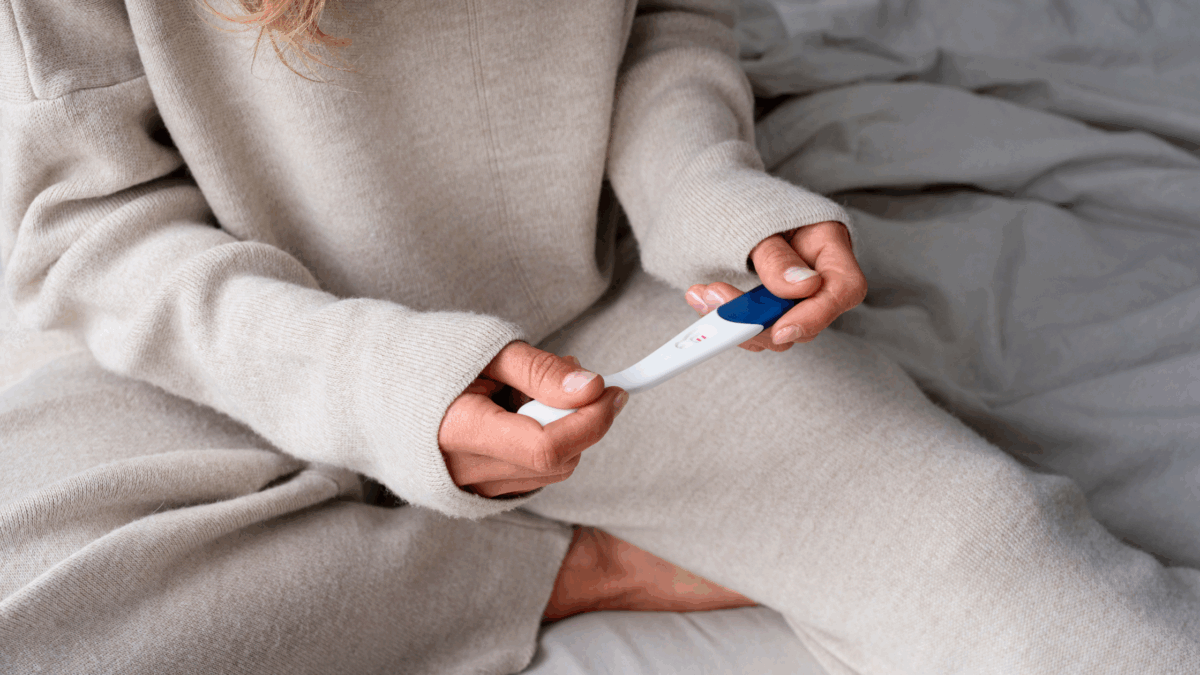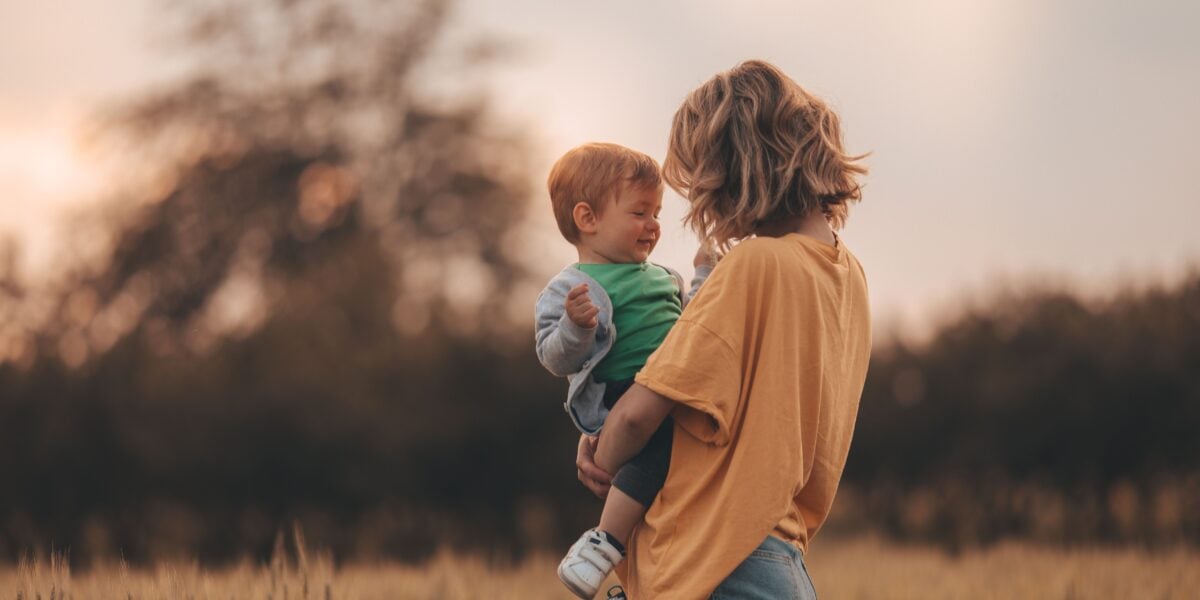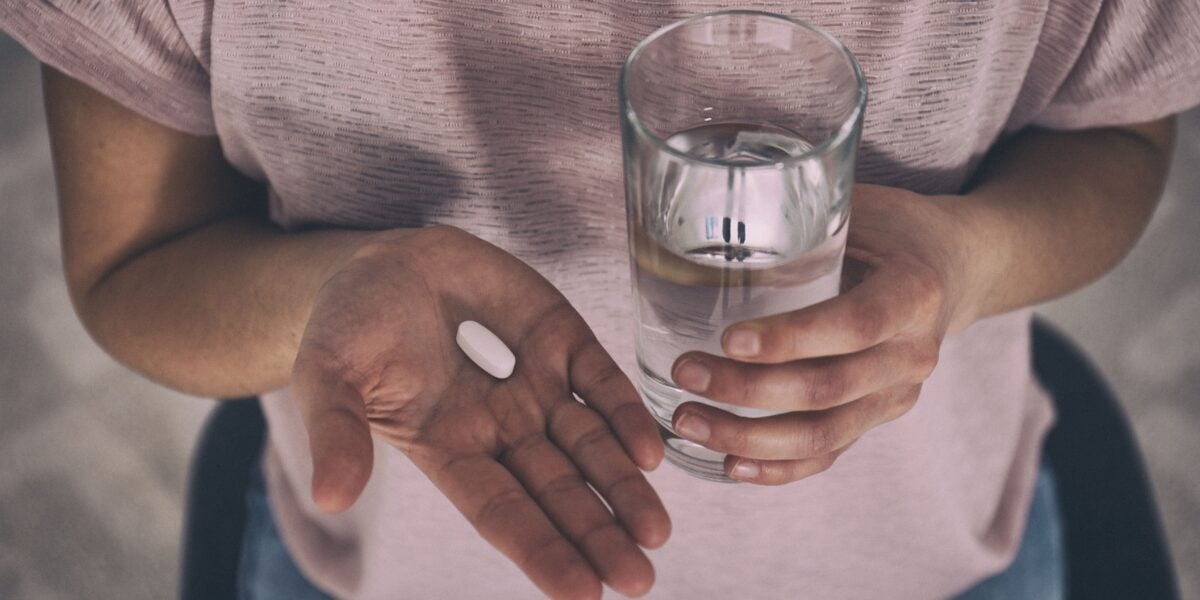Like most little girls, I imagined I’d be a mom when I grew up.
The dream wasn’t lofty. It didn’t seem selfish or unattainable. It wasn’t like I wanted to be a princess, or the President. I just knew that being a mom was what I was called to do.
Dolls, stuffed animals, pet cats and stray dogs were all my children during playtime. My nature was to nurture and the thought of not having kids was never an option. After all, nearly every child on Tiller Street, where I grew up in idyllic Orange, California, had a mommy. Life was close to perfect, the stuff of Hollywood movies. We went to Disneyland after church on Sundays. Dad drove the big gold Pontiac station wagon to Newport or Laguna Beach on warm summer evenings, and once in a while we’d even stop at Farrell’s for ice cream.
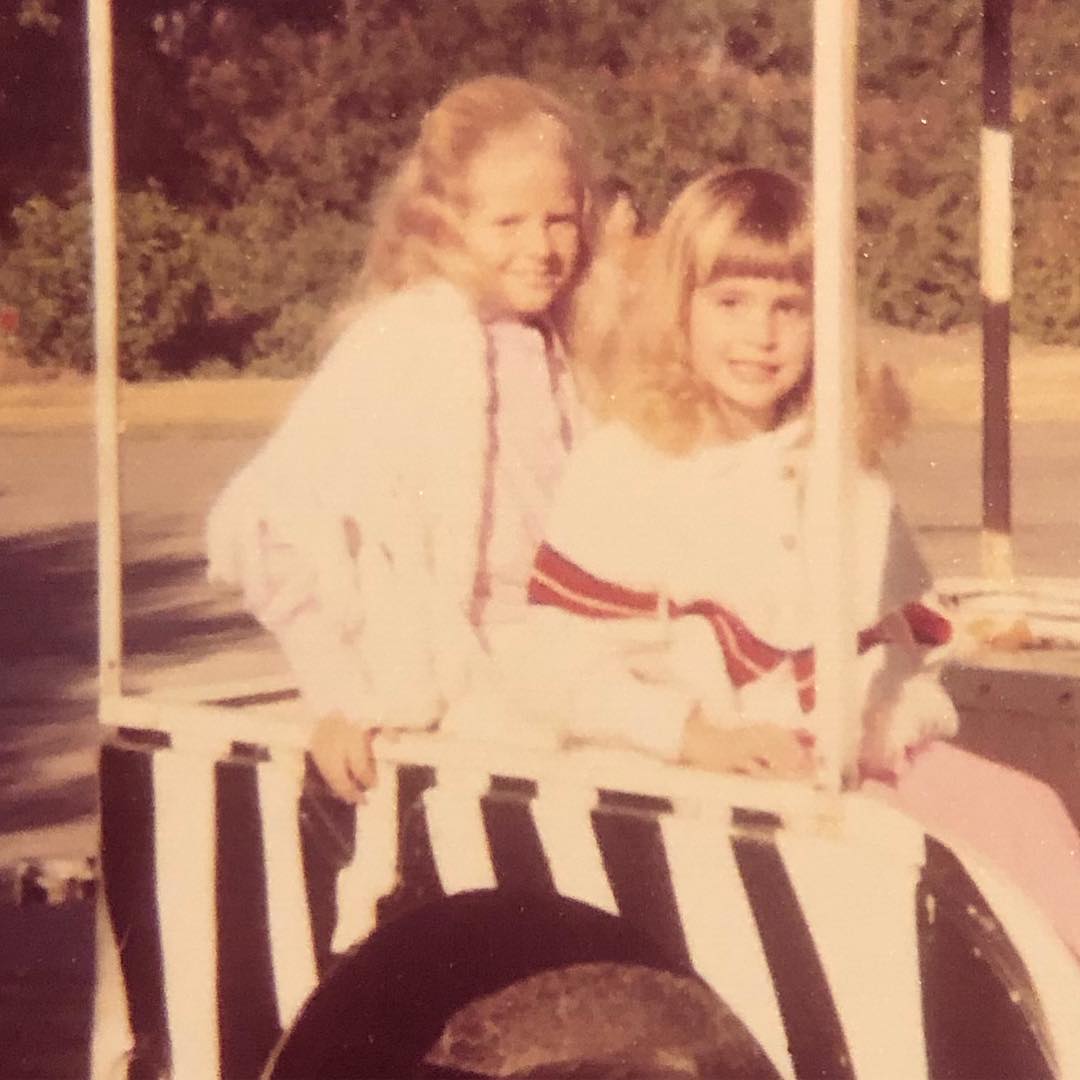
Mom and dad met in Toronto, when dad moved there for work as a plumber after growing up in Sunderland, England. They fell in love at a dance hall and married within six months. My Scottish grandmother hosted the small reception at her home and within weeks the newlyweds were ready for their adventure as husband and wife. Mom always wanted to live in sunny Southern California and as any good husband would do, he agreed. Soon the car was packed up and their journey landed them in Santa Ana, a charming, respectable working-class city halfway between Los Angeles and San Diego where the plumbers union had plenty of work and mom found a job as a phone operator for the local gas company.
The land of vivid sunsets, tall palm trees and roadside fruit stands year-round was paradise for these young immigrants, but their dream of starting a family wasn’t coming true. Infertility prevented mom from conceiving.
Somehow my dad, with his equivalent of an eighth-grade level education and inexperience in business dealings, met a lawyer who knew of a young woman who was pregnant and looking for a nice couple to adopt her baby. A deal was negotiated to cover the modest legal fees, the young woman’s medical expenses and keep the adoption private. (The birth mother was in college, married and had four young boys. Her husband was not the father.)
My birth mother was blindfolded in the delivery room at the Catholic hospital, as the nuns felt it was best that mother not bond with the baby. She gave birth to a 7 lb 3oz baby girl with big brown eyes.
I left the hospital on Valentine’s Day with my adoptive parents, comfortable in my new mom’s arms – car seats weren’t legally required in the late 1960s – and as she noted in a diary I found years later, I sucked on a salty French fry on the ride home. (Certainly not the parenting norms nowadays.)
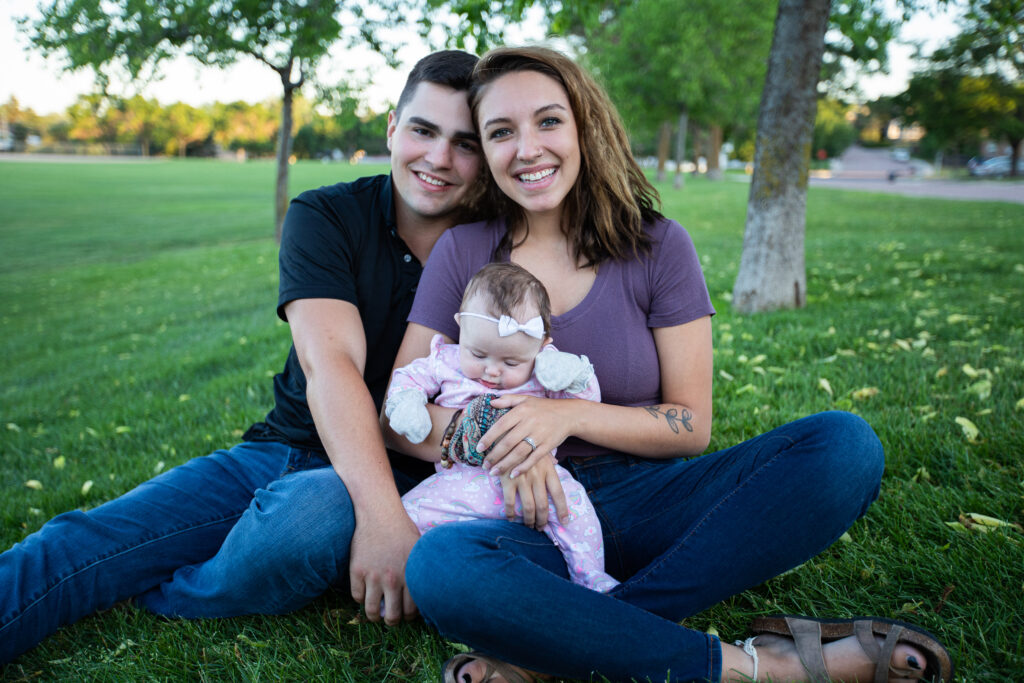
Two years later, my little brother was adopted, and our family was complete. Until it wasn’t.
When I was eight years old, mom died.
She bravely fought cancer for five years and died on dad’s 50th birthday.
My brother and I had always known we were adopted. Our mom told us we were loved twice as much because of the mother who put us up for adoption and the mother who adopted us. But as a little girl, being adopted and then having my adopted mother die, I felt that I had lost two moms.
Thankfully God gave me a personality that is able to handle life’s ups and downs. Many who know me well call me “emotionally healthy.” I threw myself into competitive ice skating and days at the beach. I worked hard. I cherished friends. I tried to enjoy experience. Friends’ mothers took me under their wings and I felt blessed to have so many women love and care for me.
But there was still a hole in my heart. I just knew that God would give me that connection with my own children that I didn’t get with my birth mom or my adoptive mom.
A few of my friends had children when they were in college, and I doted on them. I would visit the babies, celebrate birthdays, watch them grow into toddlers, start kindergarten, attend soccer games and ballet recitals. During this time, I started getting involved with Olive Crest, a foster family ministry based in Santa Ana, California. (Somehow this city is the epicenter of my life.) My work with Olive Crest started when I was a tutor with the county school district teaching at-risk teenage girls and evolved to fundraising, volunteering, mentoring and prom-dress drives over the years.
Meanwhile, I graduated from college, started my career, married and thought that it would be easy to get pregnant. But after 10 years of a very, very bad marriage, we divorced. In hindsight, it was a blessing that we didn’t have children. My heart ached for the “what if” and the empty feeling I had being alone, once again. But I did have hope. Hope for a good man, a husband who loved Jesus. A man who would be a good father to the children I knew were part of God’s plan for my life.
What was encouraging was that I had met my birth mother, and found I had not just four half-brothers but six half-brothers! Nothing too dramatic about meeting everyone. Certainly lots of teasing along with tears, and my birth mother expressed sorrow when she found out my adopted mother died when I was young. What excited me was that my mother had so many children, and that she conceived her two younger boys when she was in her late-30s. There was hope for me yet.
Two years later I met that man at church, but I didn’t know it. It took a few months and lots of phone calls to realize God introduced me to the person I’d marry. We said “I do” the next year and because I was inching closer to 40, we started trying to get pregnant right away. When we realized a year had gone by and I still wasn’t pregnant, my MD referred us to a fertility specialist. The experience was high-pressure, the cost was extremely high, and the repeated mentions of “if we find the baby to have defects, we’ll just eliminate it” made me angry. I reminded the staff at the fertility clinic that I was adopted and pro-life, and that there was no way I was going to “eliminate” a baby because of a defect. I left the clinic in tears, and vowed to adopt.
My husband vowed to stand by me. Although he seemed hesitant about adoption (he said he didn’t really know anyone else who was adopted) he said he knew being a mom was the most important thing to me. We looked into private adoptions and also signed up with Olive Crest to learn more about the foster-to-adoption program.
If you’ve seen the movie “Instant Family” starring Mark Wahlberg and Rose Byrne, or have been a foster parent, you’ll know that we went through an intense application process that included background checks, counseling, family trees and training. We’d take the day off of work and drive 70 miles to meet with the social worker of a child or sibling set, only to find out once we sat down in the meeting that the straight-A/student athlete ran away the night before and hadn’t yet been found. We fostered twin boys who had the sweetest hearts but had to be moved to a higher level of care after weeks of kicking teachers, throwing desks in the classroom, hopping six-foot fences and running into traffic. And the family/foster picnic that was so hilarious in the movie? That’s a real thing, at least in Los Angeles. Feels much like a speed-connection session for parents and at-risk kids. That’s where we met the teenage girl we eventually adopted.
The adoption wasn’t easy, but we seemed to fit into a pattern that we all understood. There wasn’t a bond, but eventually we were okay with that. We provided a safe and loving home. Battled over homework, boys and allowance. Took a trip to Hawaii before Easter, and went to the beach often. We did everything recommended by the social workers and Olive Crest. Counseling twice a week. After-school services. Healthy meals and exercise. We had a very supportive court appointed special advocate (CASA), church, pastor, prayer partners and friends who fostered/adopted and provided a phenomenal circle of strength. But because these are young human beings who have suffered beyond comprehension prior to being rescued by Child Protective Services, our teenage daughter slipped into behaviors that required extra care and services to keep her safe.
Several months went by where we drove an hour each way three times a week for visits at a residential treatment center. The week of Thanksgiving we had a traditional turkey dinner with all the fixings and created some wonderful memories. And then the unthinkable happened.
My husband had an undetected AVM rupture while in a meeting. It was seven years and three months to the day after our wedding. I received a phone call at work and rushed to the hospital in Glendale, near all the famous movie studios, where he was on life support. The neurologist told me he was brain dead.
A week later he was removed from life support. Over 300 people attended his celebration of life. I was in shock.
I told God that this wasn’t fair.
Suddenly at the age of 44 I was a widow and a single mom to a teenager I barely knew. I was angry. I told God that this wasn’t fair. I had enough loss in my life and I needed my husband to help parent this kid we recently adopted. I lost my birth mom when she put me up for adoption. I lost my adoptive mom when I was eight. I was divorced, and now a widow?
This wasn’t how my life was supposed to turn out.
You know the story of the woman at the well who Jesus ministered to in John 4? I felt like that woman.
But while in the hospital, in the midst of confusion and grief, the Holy Spirit showed me Romans 5:2-5:
“Therefore, since we have been justified through faith, we[a] have peace with God through our Lord Jesus Christ, 2 through whom we have gained access by faith into this grace in which we now stand. And we[b] boast in the hope of the glory of God. 3 Not only so, but we[c] also glory in our sufferings, because we know that suffering produces perseverance; 4 perseverance, character; and character, hope.5 And hope does not put us to shame, because God’s love has been poured out into our hearts through the Holy Spirit, who has been given to us.”
I had suffered, but I had hope.
Today, I am married to a wonderful man I met on online (yes, my third husband) and I am step-mom to two beautiful young women. My adopted daughter is in her twenties, is in a relationship and has resumed contact with her birth family. We text on occasion and she says she is doing well. I am content knowing that for the brief time she was with us she was introduced to and accepted Christ, and we provided a safe place for her and made sure she had the services in place she desperately needed.
Like other women who couldn’t have children, or have lost their moms, Mother’s Day has always been tough for me. When I sit in church and I reflect on my mom who gave me up as a baby, my mom who died, and the children I never had, I cry. Actually, I haven’t been to church on Mother’s Day in years because it is just too emotional.
But this Mother’s Day, I am choosing to reflect on what I do have.
The foster children God trusted me with for a season
The adopted teenager who needed an advocate to keep her safe
The adult step-daughters God blessed me with after so much loss
The goddaughters God gave me
The nieces who God granted with creativity and tenacity
The young children I teach in Sunday school who love to dance and sing and memorize scripture
My friends’ children who are incredibly smart and talented, and now as teens and adults aren’t too embarrassed to send me heart emojis on Instagram
My co-workers’ kids who run up to me in the office and give me hugs and handwritten cards
The young women I’ve been able to mentor over the years
If you’re like me and not a mom in the traditional sense, know that you are still a mom to someone. God has a plan for each one of you. Just because we couldn’t conceive, or raise a child from infancy to adulthood, doesn’t mean we’re not moms.
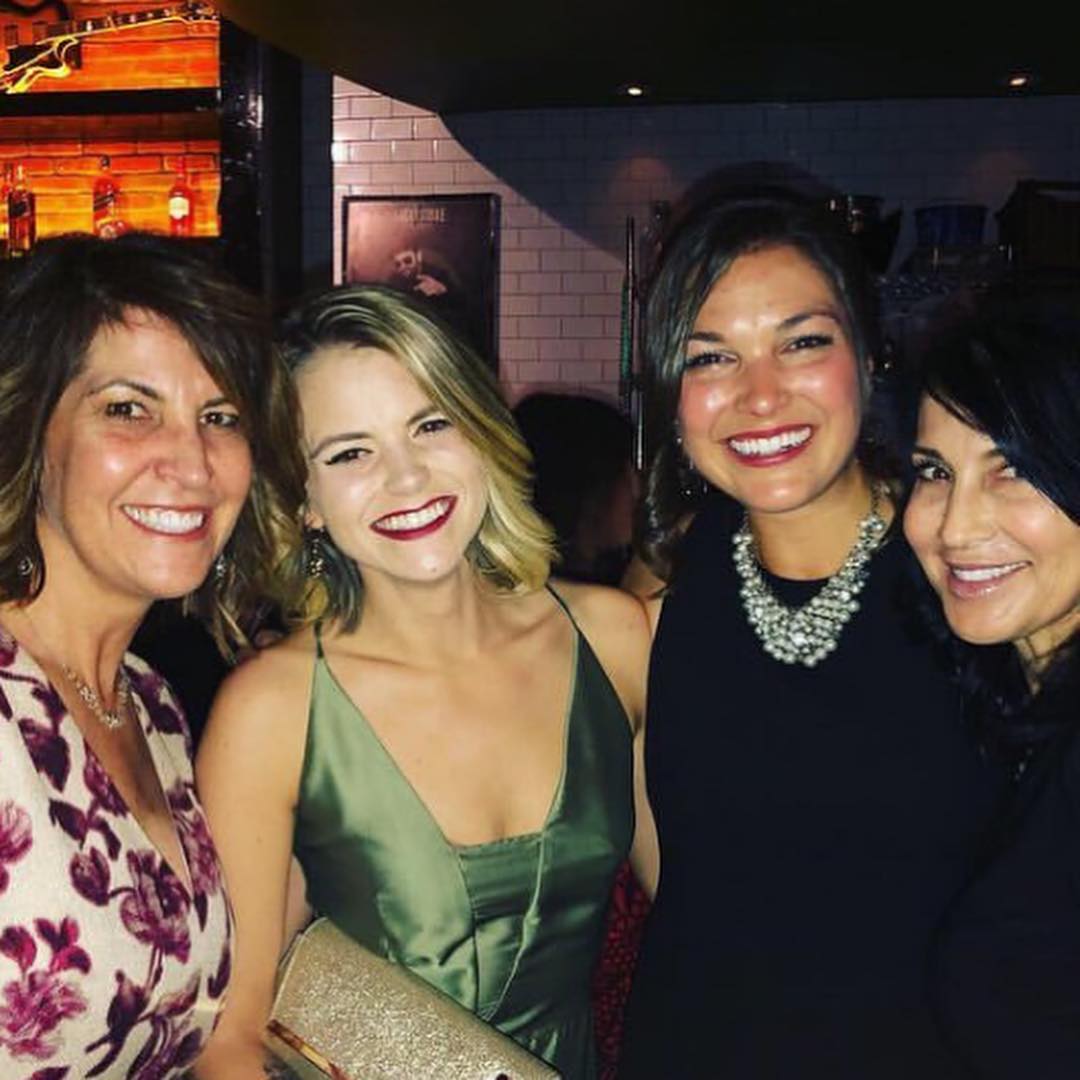
Abraham was a father to many nations. Blood lines may not flow from me to future generations, but I am confident that the love of Jesus flows from me as a spiritual mother, friend, mentor, godmother and aunt.
And I realize that indeed God has fulfilled the dream of a young girl on Tiller Avenue after all.




